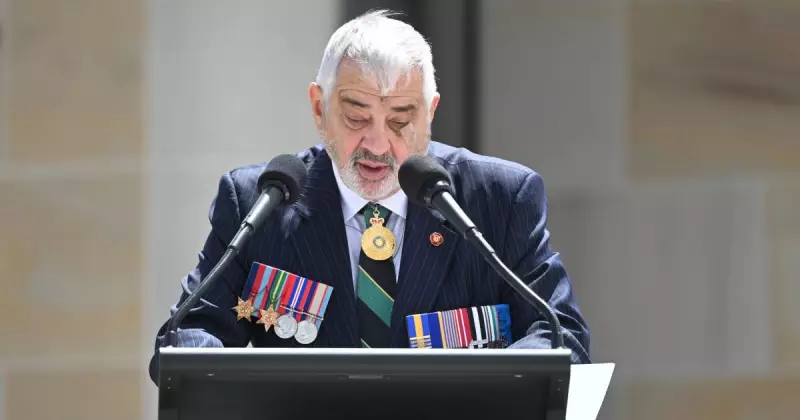
In a powerful Remembrance Day address that has reverberated through Canberra's political corridors, former RSL Australia President Major General Greg Melick has issued a stark warning about Australia's military preparedness while calling for a substantial boost to defence funding.
Veteran Leader Sounds Alarm on Defence Capability
Speaking during the National Ceremony at the Australian War Memorial, the recently retired Major General delivered a pointed critique of the nation's defence strategy, with Deputy Prime Minister Richard Marles and Defence Industry Minister Pat Conroy among those in attendance. Major General Melick expressed deep concern about Australia's complacency despite the nation's frequent involvement in conflicts since Federation.
"Despite the fact that this nation has been involved in wars more often than not since Federation, I fear we remain complacent," Melick told the solemn gathering. He emphasized that without a comprehensive strategic vision and adequate financial backing, Australia's defence planning risks being dictated by budgetary constraints rather than genuine security requirements.
Strategic Concerns in a Volatile Region
The former RSL president revealed that the organisation's defence and security committee had been persistently advocating for increased defence spending and stronger reserve capabilities, particularly in critical areas like fuel and ammunition supplies. Melick described the Indo-Pacific security environment as the most dire since 1941, echoing assessments from the Defence Strategic Review.
Quoting former Prime Minister Alfred Deakin's century-old warning that attacks would come "when and where we least desire it and with remorseless fury," Melick argued that the fundamental nature of security threats remains unchanged. He specifically called on Deputy Prime Minister Marles to convince government colleagues to reprioritise defence within the national budget.
Spending Debate Intensifies Amid Global Pressure
The call for increased funding comes as Australia currently allocates approximately 2 percent of GDP to defence, with projections indicating this will rise to about 2.4 percent by the mid-2030s. This falls significantly short of the 3.5 percent target advocated by United States Secretary of War Pete Hegseth.
Opposition defence spokesperson Angus Taylor immediately backed Melick's concerns, stating Australia faces "the most dangerous circumstances since the Second World War" and accusing the government of underfunding defence services. However, Prime Minister Anthony Albanese has maintained that his administration will fund defence based on continuously reassessed needs rather than arbitrary GDP percentage targets.
The government highlights its commitment of an additional $70 billion in defence funding over the next decade, including $10.6 billion within the next four years. Significant investments include an initial $12 billion for the Henderson Defence Precinct naval hub in Western Australia, forming part of Australia's AUKUS submarine obligations.
Melick concluded with a sobering reflection that future Remembrance Day ceremonies might mourn conflicts that could have been prevented with adequate preparation, honouring those "who we demanded to protect us without the necessary wherewithal." His speech adds considerable weight to the growing debate about whether Australia is doing enough to prepare for potential conflicts in an increasingly uncertain geopolitical landscape.





